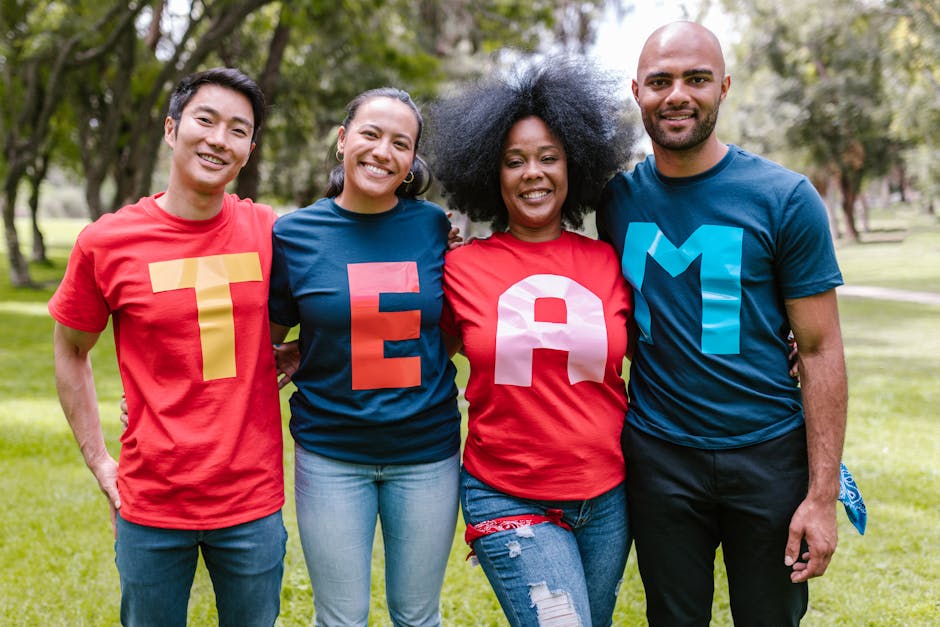This blog highlights the importance of incorporating training programmes to enhance networking events. By improving communication skills, boosting confidence, and fostering meaningful connections, training can significantly elevate the success of networking events. Moreover, AWD can help your business create the perfect networking event by providing tailored training programmes, expert planning, and engaging activities.
What is the importance of training programmes for networking events?
To make your networking events more successful, consider incorporating training programmes. These programs can help you and your team enhance communication skills, boost confidence, and improve event organisation.
Through training, you can learn techniques to engage attendees effectively, foster meaningful connections, and ensure the smooth flow of your events.
What is the secret to designing effective training programmes?
Training programmes play a crucial role in enhancing the success of networking events. The key to designing effective training programmes lies in customisation. Tailoring the content to match the specific needs and goals of your attendees is essential.
A well-structured training programme should focus on interactive activities, real-life scenarios, and practical skills that can be immediately applied in networking situations. Remember, the ultimate goal is to equip participants with the knowledge and confidence needed to foster meaningful connections and maximise the impact of your networking events.
What key elements should you include in your training programme?
Training programs should include interactive sessions to engage participants and allow them to practice skills in a supportive environment. Provide opportunities for networking exercises that mimic real-life scenarios to help attendees build confidence.
Incorporate sessions on effective communication techniques, such as active listening and body language. Additionally, focus on teaching participants how to create engaging presentations and utilise technology effectively during events.
Remember, a successful training program is one that equips attendees with practical skills they can immediately apply to enhance their networking events.
How is networking enhanced through training?
Training programs can be beneficial for improving your networking skills. These programs can help you learn strategies to build meaningful connections and enhance your communication abilities during networking events. Through training, you can gain confidence, learn how to effectively approach and engage with new contacts, and master the art of making a strong first impression.
By honing your networking skills through dedicated training, you can elevate the quality and outcomes of your networking events, ultimately boosting your professional relationships and opportunities.
Incorporating interactive activities in training
Adding interactive activities to your training programs can significantly enhance participant engagement. These activities encourage active participation and create a dynamic learning environment where attendees can interact with each other. By promoting hands-on learning experiences, you can effectively boost knowledge retention and foster a more collaborative atmosphere during the training sessions.
How can you make the training session even MORE impactful?
When planning impactful training sessions for your networking events, engaging speakers play a critical role.
Here are a few key points to consider in selecting speakers:
-
- Expertise: Look for speakers who are knowledgeable and experienced in the topic they will be presenting.
- Engagement: Choose speakers who can captivate the audience and keep them engaged throughout the session.
- Relevance: Ensure that the speakers’ content aligns with the goals and theme of your networking event.
- Interaction: Seek speakers who encourage audience participation through activities, discussions, or Q&A sessions.
- Feedback: It’s beneficial to gather feedback from previous attendees or colleagues on potential speakers to ensure they will resonate with your audience.
How can you increase engagement levels?
To encourage participation and collaboration at your networking events, it’s essential to create an engaging and interactive environment.
Here are some tips to elevate your networking events:
-
- Facilitate icebreaker activities to help attendees feel more comfortable and open to interacting with each other.
- Organise group discussions or workshops to encourage collaboration and exchange of ideas among participants.
- Promote inclusivity by ensuring everyone has a chance to contribute and be heard during networking activities.
- Provide opportunities for networking in a relaxed setting, like cocktail hours or networking lunches, to foster connections outside of formal sessions.
By implementing these strategies, you can enhance the overall experience and maximise the benefits of your networking events.
Measuring the success of training programmes
Success in training programmes can be measured through various methods to evaluate their effectiveness. You can assess the success of training programmes by analysing participant feedback to understand their satisfaction levels and whether they found the training valuable.
Observing changes in behavior after the training can also indicate success, showing if participants are applying the skills learned. Additionally, tracking key performance indicators (KPIs) related to your networking events pre and post-training can help quantify the impact of the programme.
Regular surveys and assessments, as well as monitoring attendance and participation rates, are useful in gauging the overall success of the training programmes you implement.
How can you create a lasting impression?
To create lasting impressions at networking events, focus on being genuine and engaging with others. Listen actively to what others have to say rather than talking about yourself. Remember to follow up with the people you’ve met to maintain those connections.
Dress appropriately for the event, and always have a positive attitude. A smile goes a long way in making a good impression. Prepare thoughtful questions to ask others to show your interest in them.
Future trends in networking event training
Experts predict that future trends in networking event training will focus on incorporating more interactive and immersive experiences to enhance participants’ learning and networking capabilities.
Virtual reality (VR) and augmented reality (AR) technologies are likely to play a significant role in providing realistic simulations and interactive scenarios.
Additionally, personalised learning paths tailored to individual attendees’ needs and goals are expected to become more prevalent. Emphasis will be placed on leveraging data analytics and artificial intelligence to provide real-time feedback and personalized insights to improve networking skills.
Furthermore, sustainability and eco-friendly practices are anticipated to be integrated into networking event training programs to align with the growing interest in environmental responsibility.

